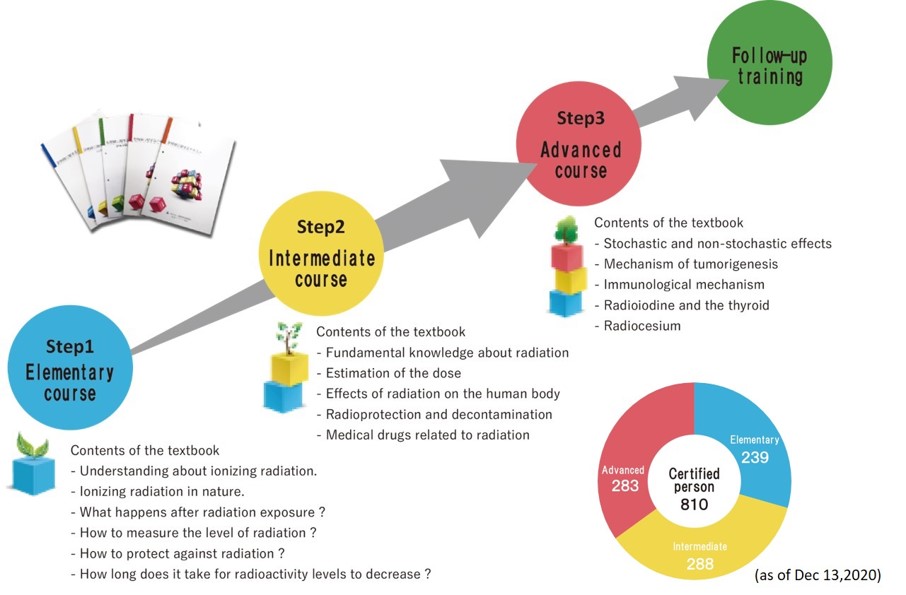

The residents of Fukushima Prefecture have been suffering from the effects of a nuclear disaster since 2011. The disaster occurred on the east coast of Fukushima Prefecture. Enormous amounts of radionuclides were released from Tokyo Electric Power Company Fukushima Daiichi (TEPCO-F1) Nuclear Power Station because a hydrogen explosion caused by the tsunami produced by the Great East Japan Earthquake on March 11, 2011, caused the power station’s control system to malfunction. A radioactive plume (air containing radionuclides) was dispersed, causing anxiety among the two million residents of Fukushima Prefecture, and hence, many people had to be evacuated. As the radioactive plume contained radionuclides with long half-lives, the effects of the nuclear disaster will persist long into the future.
Now, radiological protection systems, which are designed to help the residents of Fukushima live comfortable and healthy lives, are being run by the Japanese government. Advice regarding protection against radiation has been provided, and large amounts of radiological information has been published. However, many residents have occasionally been unsettled by confusing information and/or misinformation because the dynamics of radionuclides and the effects of low dose-radiation on health are complicated.The residents of Fukushima Prefecture need to improve their information literacy to obtain accurate knowledge about the dispersed radionuclides and the effects of ionizing radiation on health.
We decided to support residents with their daily activities by utilizing the skills of pharmacists living in Fukushima Prefecture. Pharmacists have to acquire fundamental knowledge about the fields of physics, chemistry, biology, and basic medical sciences in order to obtain their license. Therefore, by increasing their knowledge of radiological sciences, pharmacists will be able to support the residents of Fukushima Prefecture. In 2013, we launched the Radiation Pharmacist Project. As part of this initiative, we have developed a training course and prepared textbooks that will help pharmacists to study radiation and understand the latest situation regarding the aftermath of the nuclear disaster in the prefecture. As a result, hundreds of pharmacists have been trained and certified as "Radiation Pharmacists®", and they have been answering questions from residents about radiation. Over 1,100 Q & As have been recorded and classified.
To contribute to the improvement of the health of residents, we will continue these activities in pharmacies and schools in Fukushima Prefecture.

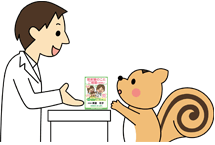
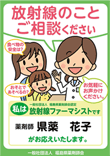
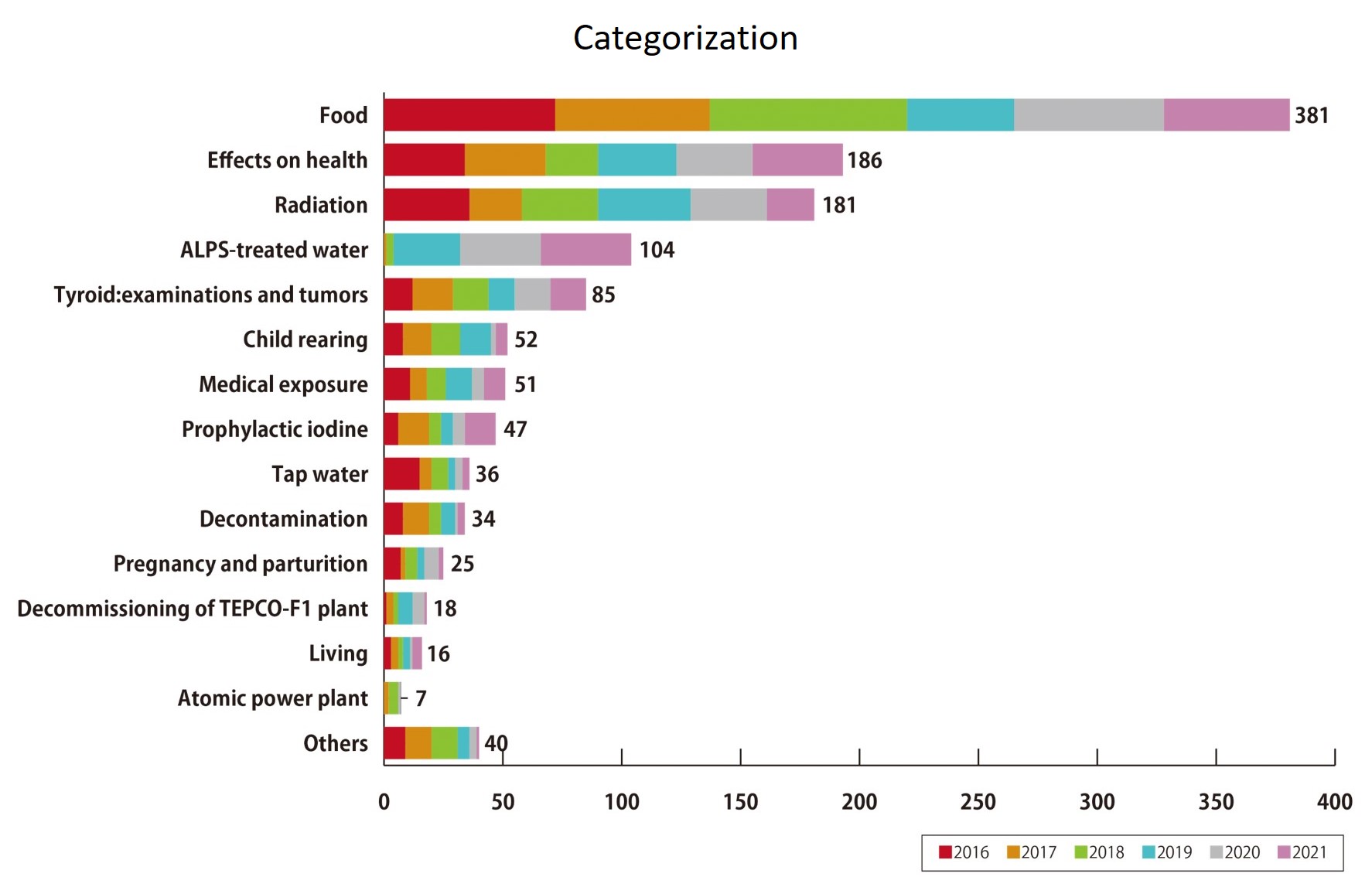
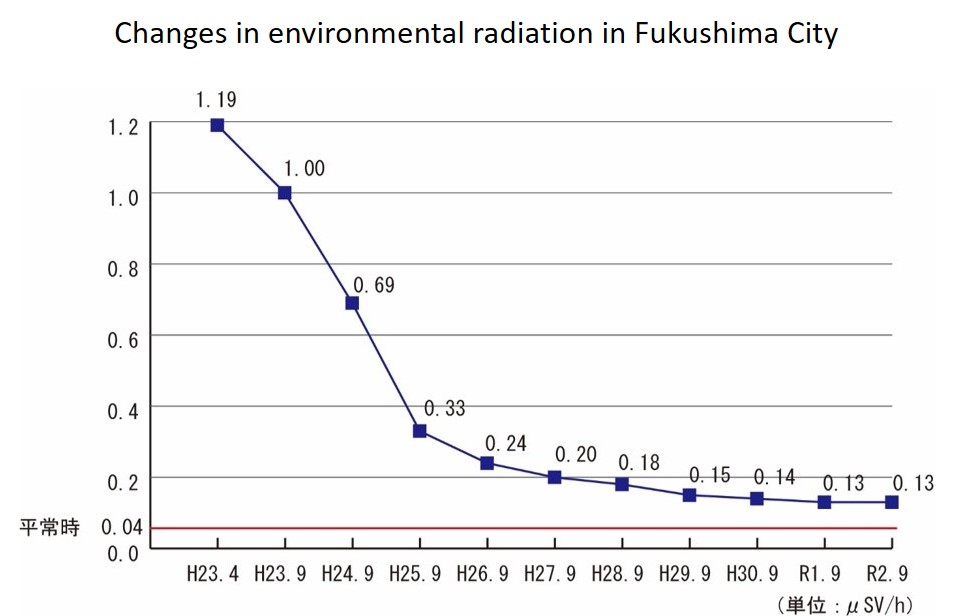
Decontamination operations in the city were aborted after April, 2018, because the air doses in most areas had decreased below the desired value of 0.23mSv/h outlined by the Ministry of the Environment. The government plans to perform "follow-up decontamination" if areas with air doses that exceed the desired value are found.
Three types of training courses, "elementary", "intermediate", and "advanced" are held every year, and pharmacists chose an appropriate course based on their knowledge level about radiation. Each of the courses involves the use of original textbooks. Pharmacists that successfully complete a course are certified as a Radiation Pharmacist® of the corresponding level. Pharmacists can raise their levels by attending the relevant training course. The advanced Radiation Pharmacist® certificate expires within 3 years. After this period, pharmacists need to re-attend the advanced course, which will use the latest textbooks.
